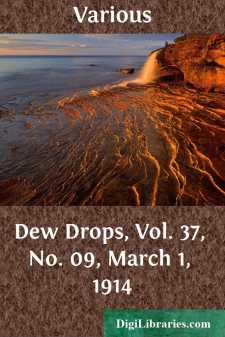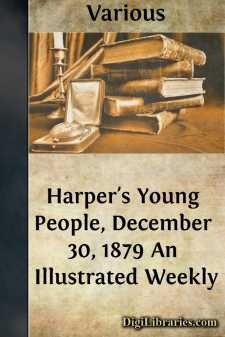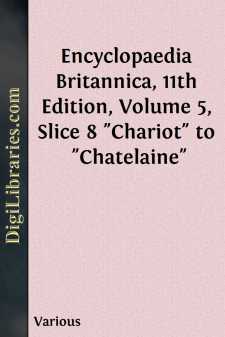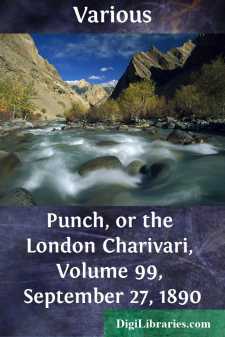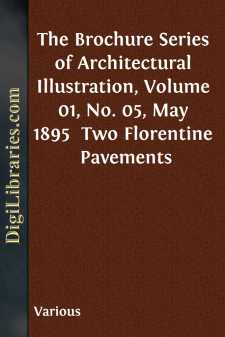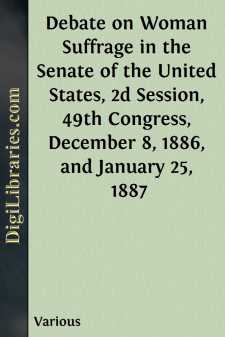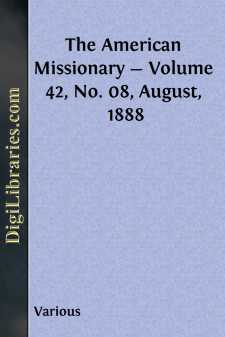Categories
- Antiques & Collectibles 13
- Architecture 36
- Art 48
- Bibles 22
- Biography & Autobiography 816
- Body, Mind & Spirit 145
- Business & Economics 28
- Children's Books 17
- Children's Fiction 14
- Computers 4
- Cooking 94
- Crafts & Hobbies 4
- Drama 346
- Education 58
- Family & Relationships 59
- Fiction 11834
- Foreign Language Study 3
- Games 19
- Gardening 17
- Health & Fitness 34
- History 1378
- House & Home 1
- Humor 147
- Juvenile Fiction 1873
- Juvenile Nonfiction 202
- Language Arts & Disciplines 89
- Law 16
- Literary Collections 686
- Literary Criticism 179
- Mathematics 13
- Medical 41
- Music 40
- Nature 179
- Non-Classifiable 1768
- Performing Arts 7
- Periodicals 1453
- Philosophy 66
- Photography 2
- Poetry 897
- Political Science 203
- Psychology 45
- Reference 154
- Religion 516
- Science 126
- Self-Help 85
- Social Science 82
- Sports & Recreation 34
- Study Aids 3
- Technology & Engineering 59
- Transportation 23
- Travel 463
- True Crime 29
Sort by:
by:
Various
MILLERISM. Toward the close of the last century there was born in New England one William Miller, whose life, until he was past fifty, was the life of the average American of his time. He drank, we suppose, his share of New England rum, when a young man; married a comely Yankee girl, and reared a family of chubby-cheeked children; went about his business, whatever it was, on week days, and when Sunday...
more...
by:
Various
"May we go, mamma? Oh, do say yes. Please say yes." Lilian and her brother Earl were invited to a children's lawn party, and, as they were not different from most other children, they were very anxious to attend. "Lilian may go, but I am afraid to trust Earl," said mamma. "There will certainly be ice cream and berries, cake and lemonade, and you know what the doctor said, Earl....
more...
by:
Various
From the quaint old farm-house, nestling warmly'Neath its overhanging thatch of snow,Out into the moonlight troop the children,Filling all the air with music as they go,Gliding, sliding,Down the hill,Never mindingCold nor chill,O'er the silveredMoon-lit snow,Swift as arrowFrom the bow,With a rushOf mad delightThrough the crisp airOf the night,Speeding far outO'er the plain,Trudging...
more...
by:
Various
CIVIL AND DOMESTIC ARCHITECTURE.—I. The term Civil and Domestic Architecture includes all public and private edifices, that is to say: honorary monuments, such as triumphal arches and tombs; buildings for the instruction of the public, such as museums, libraries and schools; houses for public amusements, as theatres, amphitheatres and circuses; structures for public service, as city-halls,...
more...
by:
Various
I take pleasure in announcing that I have purchased the entire subscription list and good will of Current Events, and offer you in its stead The Great Round World, a weekly newspaper for boys and girls. You will receive one number of The Great Round World for each number of Current Events due you on your subscription. I make the special offer, to send you The Great Round World every week until December...
more...
by:
Various
CHARIOT(derived from an O. Fr. word, formed fromchar, a car), in antiquity, a conveyance (Gr.á¼â¦ρμα, Lat.currus) used in battle, for the chase, in public processions and in games. The Greek chariot had two wheels, and was made to be drawn by two horses; if a third or, more commonly, two reserve horses were added, they were attached on each side of the main pair by a single trace fastened...
more...
by:
Various
MODERN TYPES. (By Mr. Punch's Own Type Writer.) No. XIX.—THE SERVANT OF SOCIETY. The Servant of Society is one who, having in early life abdicated every claim to independent thought or action, is content to attach himself to the skirts and coat-tails of the great, and to exist for a long time as a mere appendage in mansions selected by the unerring instinct of a professional tuft-hunter. It is...
more...
by:
Various
TWO FLORENTINE PAVEMENTS. The church of San Miniato al Monte, just outside the walls southeast of Florence, and the Baptistery, or church of San Giovanni Battista, in Florence, are among the finest examples of the Tuscan Romanesque style, and both probably date from about the same time—the early part of the twelfth century—although the date of San Miniato has until recently been referred several...
more...
by:
Various
Wednesday, December 8, 1886. On the joint resolution (S.R. 5) proposing an amendment to the Constitution of the United States extending the right of suffrage to women. Mr. BLAIR said: Mr. PRESIDENT: I ask the Senate to proceed to the consideration of Order of Business 122, being the joint resolution (S.R. 5) proposing an amendment to the Constitution of the United States extending the right of suffrage...
more...
by:
Various
FORM OF A BEQUEST. "I bequeath to my executor (or executors) the sum of —— dollars, in trust, to pay the same in —— days after my decease to the person who, when the same is payable, shall act as Treasurer of the 'American Missionary Association,' of New York City, to be applied, under the direction of the Executive Committee of the Association, to its charitable uses and...
more...



